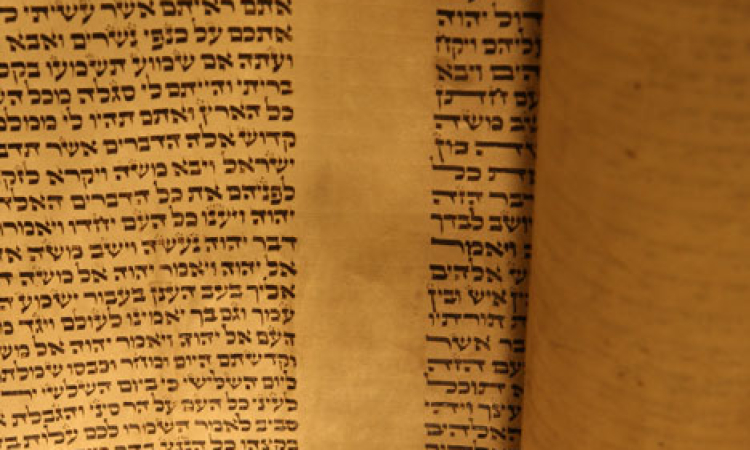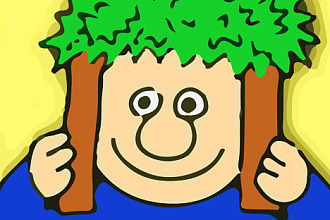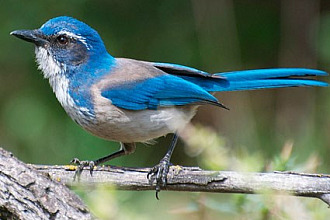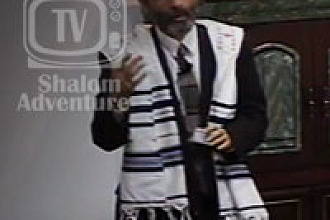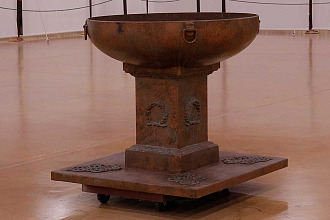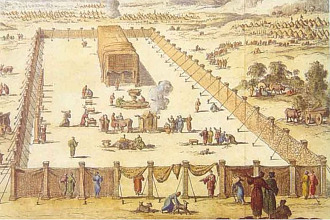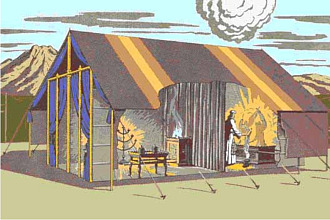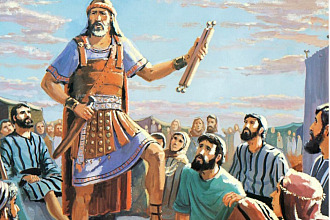Parasha for the Week: Va'era: Exodus 6:2 - 9:35
Haftarah for the Week: Ezekiel 28:25 - 29:21
Apostolic Writings: Revelation 16 Overview:
G-d tells Moshe to inform the people of Israel that He is going to take them out of Egypt. However, they do not listen.
G-d commands Moshe to go to Pharaoh and ask him to free his people.
Although Aharon shows Pharaoh a sign by turning a staff into a snake, Pharaoh’s magi-cians copy the sign, emboldening Pharaoh to refuse the request.
G-d punishes the Egyptians and sends plagues of blood and frogs, but the magicians copy these miracles on a smaller scale, again encouraging Pharaoh to be obstinate.
After the plague of lice, Pharaoh’s magicians concede that only G-d could be performing these miracles.
Only the Egyptians, and not Israel in Goshen, suffer during the plagues.
The onslaught continues with wild animals, pestilence, boils and fiery hail.
However, despite Moshe’s offers to end the plagues if Pharaoh will let Israel leaves, Pharaoh continues to harden his heart and refuses.
“Softness and Tenderness”
The Torah states in reference to the plague of hail, “The wheat and spelt were not damaged, for they were late in ripening.” (Exodus 9:32)
Rashi, explains that since they were late in ripening, they were soft when the hail struck.
Thus, they were able to bend with the wind. This flexibility enabled them to bounce back.
Rabbi Chayim Mordechai Katz, taught in the name of Rabbi Yosef Leib Bloch, that a person needs to be very strong in his principles and ideals -- so strong that no power on earth could make him veer from the truth and his values. However, the way to do this is to be like the reed -- to be soft and flexible, kind and gentle when talking with others. A person who is obstinate and inflexible might appear stronger, but he is like a cedar tree. In a strong wind, unlike the bending reed, the cedar is either uprooted or broken in two. Softness and gentleness combined with persistence in keeping one’s principles is the approach that will be victorious in the end.
"Sanctification of G-d’s Name"
The Torah states, “The Nile will swarm with frogs, and when they emerge, they will be in your palace, in your bedroom, and [even] in your bed. [They will also be in] the homes of your officials and people, even in your ovens and kneading bowls.” (Exodus 7:28). The second plague which God brought upon the Egyptians was frogs. These frogs invaded every place in Egypt, including the ovens fired up for baking.
The Talmud (Pesachim 53b) relates that the frogs were the inspiration for Chananiah, Misha’el and Azaryah. What did Chananiah, Misha’el, and Azaryah see that caused them to enter the fiery furnace of Nebuchadnezzar? They reasoned a fortiori from the frogs of Egypt. If frogs, which are not commanded to sanctify God’s Name, entered the fiery furnace in order to sanctify God’s Name, how much more so should we, who are commanded to sanctity God’s Name, do so.
Entering the fiery furnace to sanctify God’s name required great strength and commitment. Unless Chananiah, Misha’el and Azaryah had reached a level where their knowledge of God had become concretized by their senses and observed as a fact of nature, they might have shied away from taking that awesome step and wrongly justified themselves by misapplying the command to “live by them.” They saw in nature the sanctification of God’s Name by the frogs, and this supplemented their knowledge of the mandate to sanctify God’s Name. Their new knowledge gave them the courage and will to fulfill that which they knew to be intellectually binding. By seeing sanctification of God’s Name represented in nature, they sensed it, they felt it. If frogs have the strength to do this, they reasoned, surely that same strength exists within us.
"Let My People Go"
The Torah states, “G-d said to Moshe, ‘Come to Pharaoh and speak to him: ‘So says HaShem, G-d of the Hebrews: Send out My people, that they may serve Me.’ “ (Exo-dus 9:1). In this week’s reading, we find one of the most famous of Biblical quota-tions: “Let my people go!” But in actuality, it is one of the most infamous of half-quotes. It is a distortion of the truth — for the message G-d told Moshe to deliver to Pharoah was “Let my people go — that they may serve Me!”
Rabbi Yaakov Menken comments “So it is not simply “let my people go” but “that they may serve me”—that they have no human master, but rather the guidance of a loving father. And this, in truth, is the greatest freedom of all!”
"Miraculous Birth of A Nation"
Rabbi Shamshon Rephael Hirsch points out that the birth of the nation of Israel was deliberately engineered to be unlike that of all nations. Normally, a nation grows slowly, gradually, to greater prominence, perhaps breaking free of colonial rulers but gaining internal strength. Israel, however, descended from the greatness of Avraham, who held sway over the whole region, to Yaakov, who worked seven years for each of his wives, fathered children through servants, and then became a subject of the Egyptian pharaoh. Then, of course, the generations thereafter were subjugated further. This was all done to see G-d’s Hand at work, to show that we are truly G-d’s nation. This nation was created and forged by G-d through unnatural, even miraculous means. During Israel’s history G-d has delivered His people three times from the oppression of their enemies. These deliverances resulted in the miraculous birth or rebirth of the nation of Israel: after the slavery in Egypt, after the deportation of Babylon, and after the Holocaust in Europe. Are we ready to see G-d’s Hand at work today?
HAFTARAH: Ezekial 28:25 – 29:21
Parasha: In the book of Shemot, Exodus, the peo¬ple of Israel are scattered in Egypt… The Egyptians became ruthless in imposing tasks on the Israelites, and made their lives bitter with hard service in mortar and brick and in every kind of field labor. They were ruthless in all the tasks that they imposed on them. (Exodus 1:13-14).
Haftarah: Ezekiel establish a strong parallel be¬tween the people who oppresses Israel and Egypt and is invited to prophecy against the Pharaoh of Egypt: “Mortal, set your face against Pharaoh king of Egypt, and prophesy against him and against all Egypt; speak, and say, Thus says the Lord GOD: I am against you, Pharaoh king of Egypt.” (Ezekiel 29:2-3) Therefore, thus says the Lord GOD: “I will bring a sword upon you, and will cut off from you human being and animal; and the land of Egypt shall be a desolation and a waste. Then they shall know that I am the LORD. Because you said, “The Nile is mine, and I made it.” (Ezekiel 29:8-9)
Parasha: Moshe announces to Pharaoh that the country will be cursed by plagues: The Egyptians shall know that I am the LORD, when I stretch out my hand against Egypt and bring the Israelites out from among them.” (Exodus 7:5)
Haftarah: Ezekiel make a link with the 40 years of Israel in the wilderness: I will make the land of Egypt an utter waste and desolation… No human foot shall pass through it, and no animal foot shall pass through it; it shall be uninhabited forty years. I will make the land of Egypt a desolation among desolat¬ed countries; and her cities shall be a desolation forty years among cities that are laid waste. I will scatter the Egyptians among the nations, and disperse them among the countries. (Ezekiel 29:10-12) However there is a hope, there is a future even for Egypt or any nation who oppressed Israel if they re¬pent: Further, “thus says the Lord GOD: At the end of forty years I will gather the Egyptians from the peoples among whom they were scattered.” (Ezekiel 29:13)
APOSTOLIC WRITINGS: REVELATION 16
The parasha describes the first plagues that were inflicted upon Egypt to persuade Pharaoh to release the children of Israel who were slaves in Egypt. This text of Exo-dus reminds me the last seven plagues described in the book of Revelation and chapter 16. There are many similarities between the people of G-d in the time of Moses and the people of G-d at the end of time. G-d’s people in the time of Moses were in exile in Egypt. G-d’s people at the end of time are also in exile. We know that our homeland is in heaven, our homeland is not on this earth, in this world of sin. That is why according to the Bible the world where we are living and its reli-gious system is called Babylon, religious confusion. Living in this confusion, the world, close to its end, still refuses to recognize Yeshua as the Messiah, the only so-lution to the challenges the world faces.
In the parasha the Egyptians were visited by God’s judgment; they were punished for what they had done to the people of Israel. In the book of Revelation, the ene-mies are not anymore the Egyptians, but a world triple coalition of powers called the dragon, the beast and the false prophet, “Then I saw three evil spirits that looked like frogs; they came out of the mouth of the dragon, out of the mouth of the beast and out of the mouth of the false prophet” (Revelation 16:13). That’s why the last seven plagues come upon the world as a punishment it has “shed the blood of your saints and prophets” (Revelation 16:6). In the book of Exodus, Pharaoh refused to repent and let Israel go, our world has follows the same behavior, that is why, as Moses had a special message for Pharaoh and the Egyptians of his time, G-d gave to His people a special message to be preached to the world at the end of time, this message is given in Revelation 14: 6-12, in this text G-d said to the world “Fallen! Fallen is Babylon the Great, which made all the nations drink the maddening wine of her adulteries.” (Revelation 14:8) and this message is completed by a call given in the chapter 18 “Come out of her, my people, so that you will not share in her sins, so that you will not receive any of her plagues” (Revelation 18:4).
Thus, we are in Babylon, we are spiritually enslaved in Babylon exactly as the peo-ple of Israel were living as slaves in Egypt and we are invited to “come out” from Babylon, we are invited to “come out” from this slavery and to join the contempo-rary people of G-d, it will be the only way to avoid the last plagues as the Jewish people avoided the plagues in Egypt.
The seven plagues of Revelation are different of the Egyptian plagues even though some of them were similar (waters changed in blood, or the darkness). The last plagues are:
1. ugly and painful sores on the land
2. The water of the sea turned into blood
3. The water of the rivers and springs of water became blood.
4. Power is given to the sun to scorch people with fire.
5. The throne of the beast, and his kingdom is plunged into darkness
6. The great river Euphrates, and its water is dried up to prepare the way for the kings from the East.
7. Flashes of lightning, rumblings, peals of thunder and a severe earthquake which announce the second coming of the Mashiach.
The chapter resumes the last plagues in this way, “The seventh angel poured out his bowl into the air, and out of the temple came a loud voice from the throne, say-ing, “It is done!” (Revelation 16:17). “It is done,” that means we are at the last mo-ment of the history, the next chapter tells us how the great prostitute (apostate churches) will receive her punishment too. G-d’s Enemies will not have the last word, even though we think that today they are the winners. It is good to be on the right side, to be with God and His people.
I met from time to time people who are afraid to live at the very end, when the plagues will be poured on the earth, because they don’t know if they will survive. I would like to say to everyone who is afraid, don’t be afraid, we have nothing to fear, the Hebrews in Egypt are an example for us, when the ten plagues were poured on Egypt, not joined one of the people of Israel were touched, no one died, even among the Egyptians, everyone who had faith in G-d and who joined Israel in the land Go-shen were saved. That is why we can be sure that when the last seven plagues will be poured on the earth, no one from the people of G-d will be touched. God’s protec-tion will be complete over His. “Come out of Babylon, . . . . so that you will not re-ceive any of her plagues” (Revelation 18:4).

